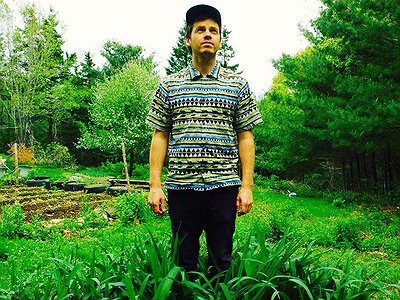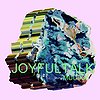Part 1
Name: Jay Crocker
Nationality: Canadian
Occupation: Composer, Producer
Bands/Projects: Jay Crocker, Ghostkeeper, No More Shapes
Labels: Drip Audio, Saved by Vinyl, Backward Music
Current Release: Muuixx on Drip Audio/Backward Music
Musical Recommendations: Bug Incision (Improv imprint out of Calgary run by a terrific improviser musician, Chris Dadge); Jon Mckeil (Amazing song writer and musician from Sackville, New Brunswick.)
When did you start writing/producing music - and what or who were your early passions and influences?
I started writing my own music from the get go. When I got my first guitar at around 13, I learnt a few chords and then started writing songs. My early influences are pretty standard fair, Black sabbath, Hendrix etc ... I toured for a few years right out of high school, and then began studying jazz. That s where I discovered free jazz and improv and I really started listening to as much New Music as I could.
For most artists, originality is first preceded by a phase of learning and, often, emulating others. What was this like for you? How would you describe your own development as an artist and the transition towards your own voice?
I think I have always been searching for my own voice and always will be searching for my own voice. I never really tried to emulate anybody. I started playing trumpet at around 12, and I remember, after I had strengthened my embrasure enough to produce a sound, I would sit in my room and improvise. At the time I had know idea that I was “””improvising””” but I was definitely experimenting. It has been the same with guitar, synthesizers, electronics .... I try to observe and absorb the fundamentals to the point where my body can take over and interpret and translate it into something that I want to say. I think that basic instinct to try and sound or do things differently or in my own way has led me to where I am now. That and I felt like I was always shitty at playing other people's music note for note or whatever. I liked how they did it but if I tried to emulate rather than interpret I felt like it was just a shittier version of the real thing.
What were your main compositional- and production-challenges in the beginning and how have they changed over time?
I started composing the JOYFULTALK project about 3 years ago. The first challenge was to come up with a notation system that was specific to each homebuilt instrument. The system was created using a hybrid of standard and graphic notation. In order to be able to read the graphic parts of the notation I made large scale score templates that are specific to the project. When recording the project I ended up using both digital and analogue recording techniques. Some of the instruments are pretty crude and designed for improvisational purposes I would have to create loops of certain parts in order to save time.
Tell us about your studio, please. What were criteria when setting it up and how does this environment influence the creative process? How important, relatively speaking, are factors like mood, ergonomics, haptics and technology for you?
I live in rural Nova Scotia in Canada. My studio is sort of a weird barn converted into a work space. I guess one of the main criteria when I was building it was to have high ceilings so I took out the second floor in one section of the building so now the ceiling in the main room are about 17 feet. Another criteria is that I have everything on tables that have wheels. I can quickly re-configure the room to different configurations depending on what is happening in there or what I'm working on. Maybe I just have a caster fetish. Mood and environment and that stuff isn’t that important to me, not to say it doesn’t play a part in creating. Just having a space that I can create in when ever I want is really sweet and is great right now, the smaller details work themselves out as time goes on.
What are currently some of the most important tools and instruments you're using?
For the JOYFULTALK project I use mostly invented or modified instruments so all of those things are pretty important in creating the sound of that project. The instruments range from home-made drum machines and synths to modified stringed instruments. For recording I always have a few tape machines ready to go, ½”, 1/4”, and cassette 4 track, and 2 track. I use an rme ucx to input and output to and from an ipad for all digital processing.
Many contemporary production tools already take over significant parts of what would formerly have constituted compositional work. In which way do certain production tools suggest certain approaches, in which way do they limit and/or expand your own creativity? Are there any promising solutions or set-ups capable of triggering new ideas inside of you as a composer?
For the past couple, of years I have been fairly consistent with my compositional process. I have developed a hybrid notation system on large format scores for the invented or modified instruments, so I have been committing everything to paper before I start recording. I find this limitation ends up being an expansion of creativity in the end. Not only do I find it meditative to write things down on paper, but for me being able to reference the initial creative thought enables me to have a clearer vision of the outcome, even though things often change a lot during the recording process. There are other times I will sample an improv and use that as a jumping off point … sometimes being by the river, by the ocean, in a city ...
Could you describe your creative process on the basis of a piece or album that's particularly dear to you, please? Where do ideas come from, what do you start with and how do you go about shaping these ideas?
I don’t think there is one record that influences the creative process. I try to listen to a much as I can, especially around the beginning of a period in time that I have set aside for writing. That being said, at the time that I was composing MUUIXX I was listening to Harmonium and early Kraftwerk a lot as well as some Milton Babbit and Harry Partch. The ideas come from sitting down and writing down a melody or rhythm. Or I will transcribe an improvisation and work from there.
With more and more musicians creating than ever and more and more of these creations being released, what does this mean for you as an artist in terms of originality? What are some of the areas where you currently see the greatest potential for originality and who are some of the artists and communities that you find inspiring in this regard?
I don’t really think about having to be original. I always try to push myself to search and explore new creative places that I have never been before regardless of whether it is “original” or not. I think that the greatest potential for an artist to be original, as cliché as it might sound, is to pursue a practice that leaves them fulfilled. This will ultimately lead to more work being created and in turn more of a distinct voice being cultivated.






